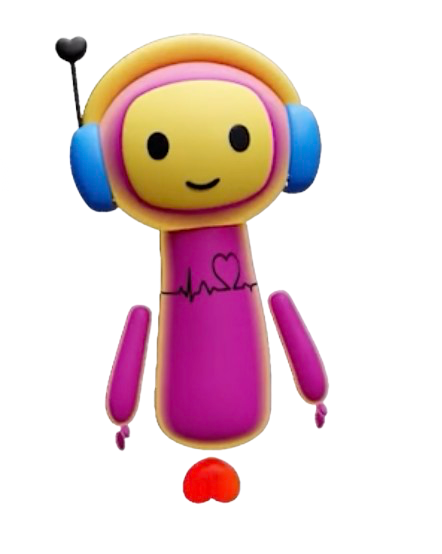ADHD Treatment in Children and Adolescents
Attention-Deficit/Hyperactivity Disorder (ADHD) is a developmental and neurological condition, which typically presents during early childhood, with at least some symptoms present prior to age 12. Neuropsychological Assessment is the right path to understand an individuals specific strengths and weaknesses. According to the Center for Disease Control, 1 in 10 children in the United States is affected by this disorder. ADHD is considered a lifelong condition; however, the symptoms and challenges an individual with ADHD experiences changes during maturation. As a young child, an individual with ADHD may present as more hyperactive. For example, he or she may seem to be “on the go” or “driven by a motor” and these children often behave impulsively, such as talking over others or having trouble waiting their turn. In addition, young children with ADHD have a great deal of difficulty screening out distracting, extraneous stimuli leading to difficulty paying attention in stimulating classrooms. As an individual with ADHD matures, they are more likely to struggle primarily with symptoms of inattention, although they may still display signs of hyperactivity. In addition, adolescents and adults with ADHD often describe problems with executive functioning, which involve higher-level cognitive activities necessary to succeed in academic and occupational settings, such as planning, organization, time management, and productivity.
Although ADHD is a chronic condition, the symptoms can be effectively managed through a variety of techniques, such as psychotropic medications, microbiome treatment, and behavioral strategies. Our more advanced understanding of ADHD and Learning Disabilities has led to a better definition of why ADHD has become so detrimental to success… The answer is developing the Executive Functions!
Individualized to you
Assessment and ADHD Treatment
When a client reports symptoms of attention deficit, we approach the test evaluations very carefully. This is because the behavioral symptom of inattention may be linked to many disorders and etiologies. A psychological assessment has the capacity to diagnose a condition such as ADHD, but it lacks the specificity to understand what is causing the symptoms. This is why we always recommend a comprehensive neuropsychological assessment. Neuropsychological testing evaluates all the cognitive domains including:
Intellectual, achievement, attention and working memory, language functioning, visual spatial functioning, executive functioning, and personality development. Evaluation of this last area is so important because cognitive disorders such as ADHD affect a person’s self confidence, which can lead to anxiety, depression, drug use, etc. Knowing that there is a developmental antecedent to internalized or externalized symptoms is life changing feedback for a client that struggles with depression or addiction.
- Mood and Anxiety Disorders
- Substance Abuse
- Migraines
- Post Concussion Symptoms
- Seizure Activity (mild seizures are virtually undetectable but cause inattentive symptoms)
- Sensory Integration Problems
- Sleep Disturbances
- Autism Spectrum Symptoms
- Learning Disabilities
Co-existing conditions and ADHD
It is important to understand that an ADHD diagnosis does not rule out other mental health conditions. The following disorders are not part of an ADHD diagnosis but sometimes co-occur with ADHD, or get confused with it:
Anxiety
Excessive worry that occurs frequently and is difficult to control. Symptoms include feeling restless or on edge, easily fatigued, panic attacks, irritability, muscle tension, and insomnia.
Depression
Symptoms include feelings of hopelessness, helplessness, and self-loathing, as well as changes in sleep and eating habits and a loss of interest in activities you used to enjoy.
Learning Liabilities
Problems with reading, writing, or mathematics. When given standardized tests, the student’s ability or intelligence is substantially higher than their achievement.
Substance abuse
The impulsivity and behavioral issues that often go along with ADHD can lead to alcohol and drug problems.
Getting help after an ADHD diagnosis
A diagnosis of ADHD can be a great wake-up call—it can give you the extra push you need to seek help for the symptoms that are getting in the way of your happiness and success. If you or your child is diagnosed with ADHD, don’t wait to start ADHD treatment. The earlier you begin tackling the symptoms, the better.
Managing ADHD takes work. Finding the right treatments for you or your child is a process—one that takes time, persistence, and trial and error. But you can help yourself along the way by keeping the following goals in mind: learning as much as you can about ADHD, getting plenty of support, and adopting healthy lifestyle habits.
REMEMBER:
Don’t give up hope. With the right treatment and support, you or your child will be able to get the symptoms of ADHD under control and build the life that you want.
It’s up to you to take action to manage the symptoms of ADHD. Health professionals can help, but ultimately, the responsibility lies in your own hands.
Understanding the disorder will help you make informed decisions about all aspects of your or your child’s life and treatment.
While treatment is up to you, support from others can help you stay motivated and get you through tough times.
Find ADHD Treatment Near You

Meet Be Humane’s AI chatbot – here to help. Ask anything, anytime with no judgment. “Your family’s parenting companion”


Begin your Unfold Psychology journey here.
Locations
100 Tamal Plaza, Ste. 107 Corte Madera, CA 94925
1955 Mountain Blvd., Ste. 101 Oakland, CA 94611
2860 Laguna St., Ste. 101 San Francisco, CA 94123
Contact

